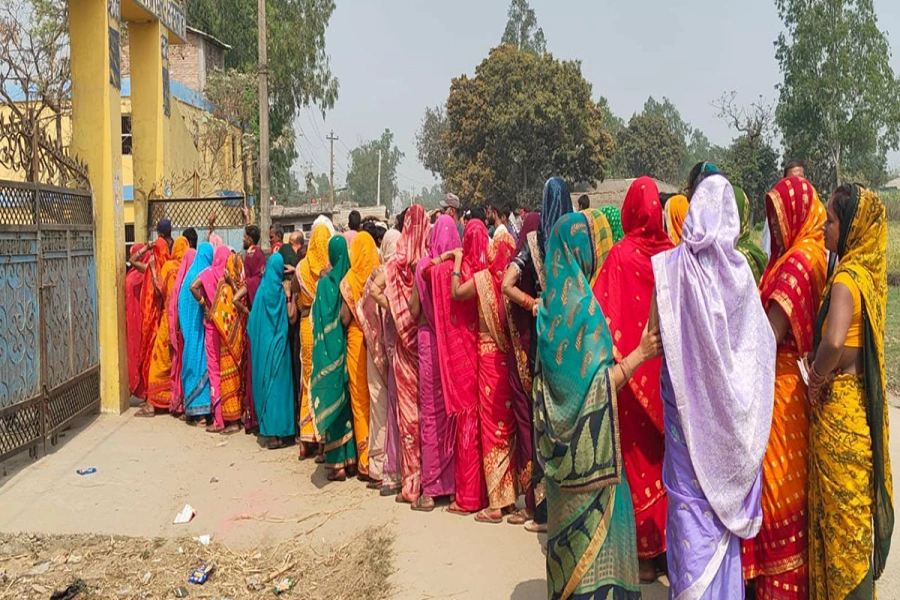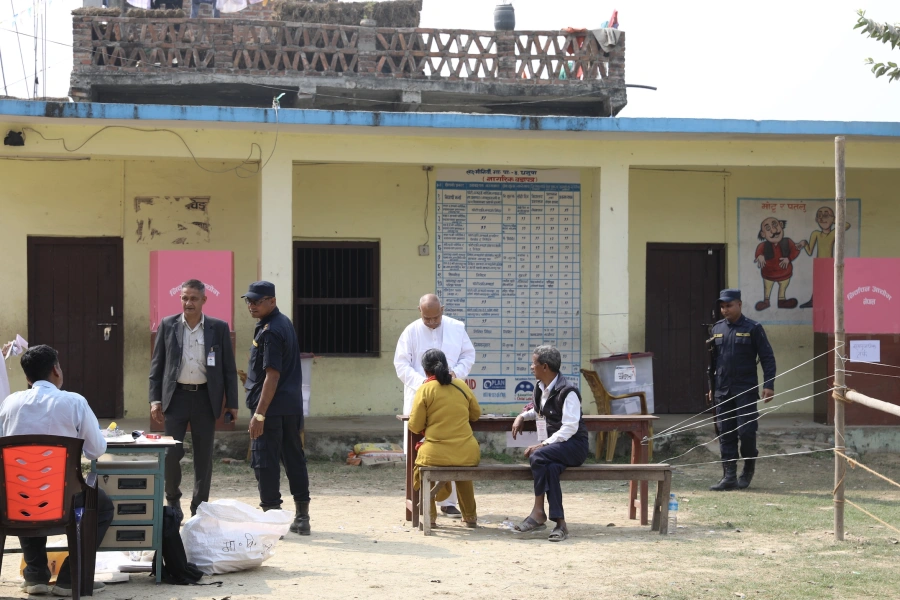KATHMANDU, May 16: Prime Minister KP Sharma Oli has stated that with the increase in global distrust and the weakening of multilateralism, the organization of the Sagarmath Sambaad is significant.
Discussing Nepal as the land of Buddha, a symbol of knowledge and peace, he emphasized that the concept of Sambaad has its roots in this very tradition. Our ancient saying goes, ‘Vade vade Jayate tatvabodha’ he remarked. He further mentioned that the purpose of organizing this Sambaad is to inspire discussions and actions related to climate change.
He emphasized that the Sagarmath Sambaad serves as a platform for global dialogue.
Discussing how global events, regardless of their location, affect everyone, he pointed out that the melting of glaciers and forest fires have far-reaching consequences. He mentioned that the impact of climate change on the mountains and humanity is direct, and posed the question, “Can mountains survive without humanity?” He emphasized that the Himalayas play a crucial role in keeping the world alive.
He highlighted that the Himalayan region's glaciers are melting, and rainfall patterns have become unpredictable. He added that the poor and vulnerable are the most affected by climate change.
To address climate change, a global effort is essential, and polluting countries must bear responsibility, said PM Oli. He pointed out that the international community has not given enough importance to mountain issues, adding that when the Himalayan region faces crises, the valleys and lower plains are also affected.
Sagarmatha Sambaad: main goal of Sagarmatha Sambaad is to forge...

“The world must give importance to mountains, and there must be certainty regarding climate finance,” he said, “High-altitude regions inspire humanity to take action for the distant future. Therefore, mutual cooperation is necessary for a just society and a secure future,” he stated.
In her welcome remarks, Foreign Minister Arzu Deuba Rana said that the Sambaad would provide meaningful discussions to solve the climate change challenges faced by the global community.
“Nepal is severely affected by climate change. The ecological system of the Himalayas is facing a crisis. Extreme weather events have increased in Nepal. Floods, droughts, and forest fires have had an impact,” she said.
She further explained that the Himalayas play a crucial role in regulating the natural cold system, and the effects of the changes occurring in the mountains reach the oceans. She emphasized that cooperation is essential to protect human existence from the effects of climate change, and it is everyone's responsibility to ensure a safe future for the next generation.
“The mountain communities are facing livelihood issues. Local women and impoverished communities are tackling this challenge in their own ways. To find a sustainable solution to the problems faced by this region, global cooperation from the government, corporations, and civil society is essential,” she said.
She also emphasized the need for easy access to the climate damage fund and stated that global cooperation is crucial for Nepal's climate mitigation and adaptation efforts.
“The global forum will contribute to international peace and disaster management in the context of climate change,” she added, “The President of COP29 and the Minister of Energy, Natural Resources, and Ecology, Mukhtar Babayev, praised Nepal's initiative to organize the dialogue on mountains, climate change, and humanity, calling it a commendable effort.”
Rana mentioned that due to climate change, Azerbaijan has seen a 20 percent decrease in glaciers over the past seven years, which has impacted agriculture. “To tackle the global challenge of climate change, global action is necessary,” she said, “Thet mountain issues have now been included in the UN Framework Convention on Climate Change (COP process).
She further stated that with the support of various donor agencies, the process of protecting glaciers worldwide has advanced, with a contribution of 3.5 billion US dollars.
Bhupender Yadav, India's minister of environment, forest and climate change, highlighted that while South Asia contributes less to global carbon emissions, it is the most affected region.
“Our future must be based on collective efforts. To address the challenge of climate change, it is necessary to strengthen climate finance and the transfer of technology,” she said.
Discussing the need for knowledge and cooperation to tackle climate change, she emphasized that scientific collaboration, climate resilience, early warning systems, and the empowerment of mountain communities are crucial. “Cooperation must be based on the principle of Vasudhaiva Kutumbakam (the world is one family),” she added.
She mentioned that China is making efforts to protect Mount Everest and that conservation work is also being carried out in the surrounding mountainous regions. She emphasized that developed countries, which are responsible for climate change, should assist developing countries in addressing the issue.





































